"Don't ignore them" — common causes of night sweats and how to stop them, according to a sleep and menopause expert
We explore what could be causing you to overheat at night, from medication to menopause
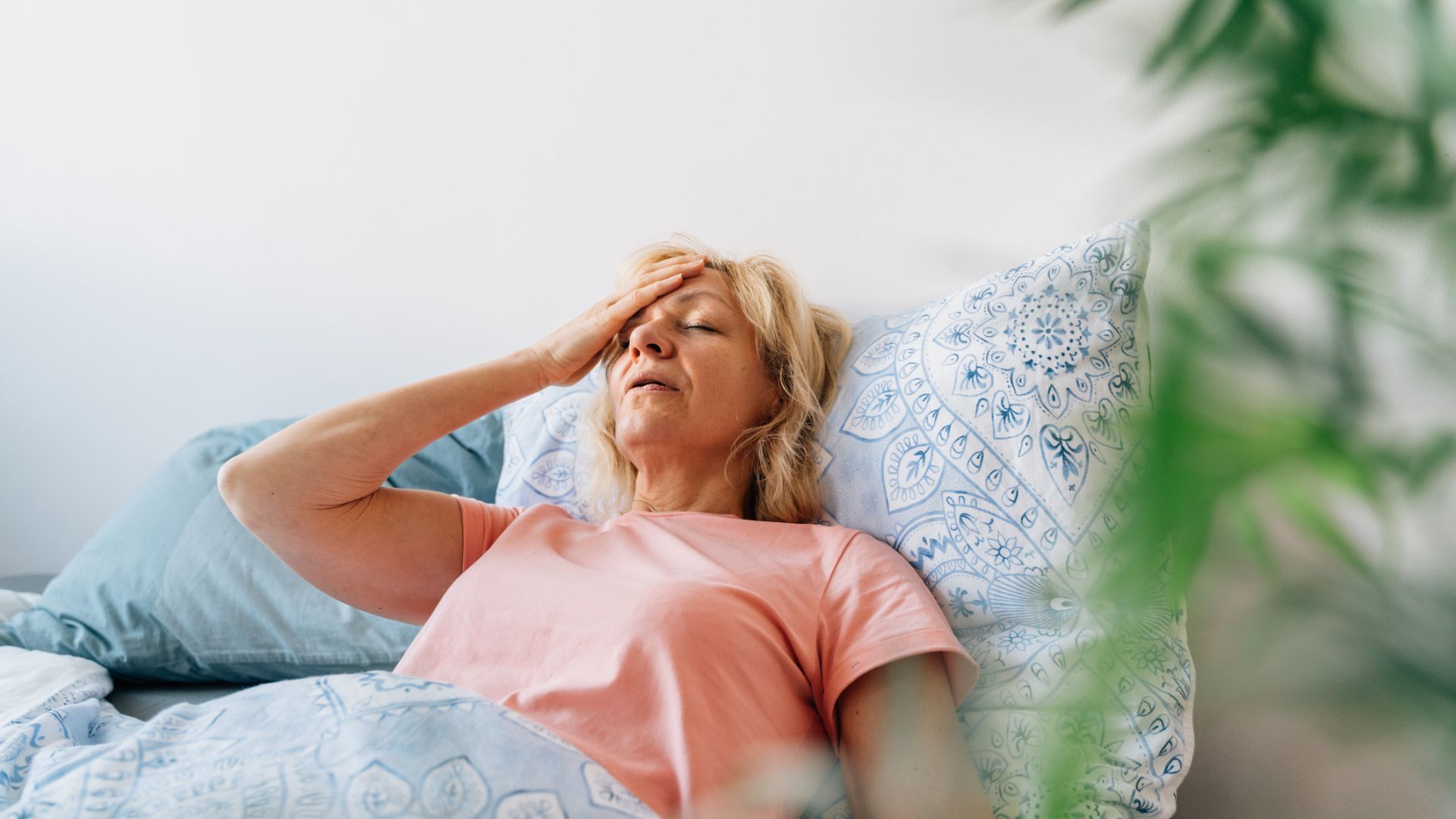
Any number of things can keep you from getting a good night’s rest. Among common offenders, night sweats affect as much as 41 percent of primary care patients.
But how can you tell if you’re actually experiencing night sweats—or if you simply run hot or have a sub-optimal sleep environment?
And if you are dealing with true night sweats, how can you pinpoint the cause and stop them from sabotaging your sleep and well-being?
Menopause Awareness Month starts tomorrow, and as hormonal imbalances are well-known causes of night sweats, we’re asking a sleep medicine physician for the signs that hormone changes are to blame for your uncomfortable nights.
Plus, we'll explore other common causes, expert-approved solutions for treating night sweats, and when it's time to visit your doctor.
What are night sweats?
Night sweats are recurring episodes of excessive sweating that occur while you sleep. They differ from infrequent bouts of overheating at night, which can happen now and then due to environmental factors.
According to Andrea Matsumura, MD, MS, FACP, FAASM, board-certified sleep medicine physician at Sleep Goddess MD, running hot at night can occur if your room is too warm, your bedding is heavy, or you’ve consumed alcohol or spicy food before bed.
Night sweats, on the other hand, are often a sign of an underlying health condition. They tend to stand out with a few key traits:
- Frequency and severity. “If you’re waking up drenched in sweat multiple nights per week and needing to change your clothes or sheets, that’s a red flag,” says Dr. Matsumura.
- Adverse symptoms. If you experience night sweats alongside other symptoms—including but not limited to weight loss, fever, menstrual irregularities, chronic fatigue, or mood swings—Dr. Matsumura says a bigger health issue may be at play.
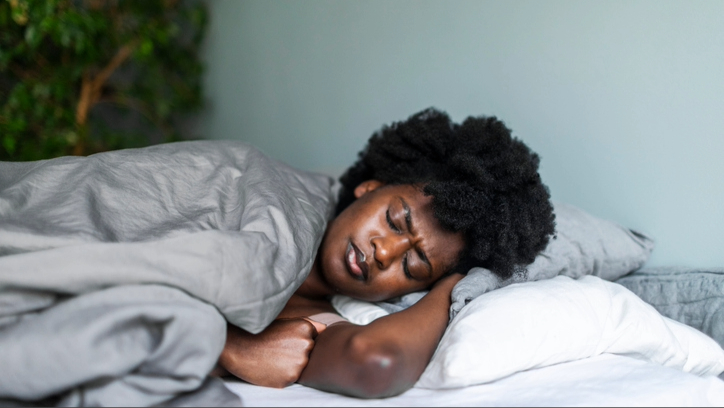
What causes night sweats?
Menopause and other hormone changes
Hormonal fluctuations are among the most common causes of night sweats—especially for women.
“Fluctuating estrogen levels during perimenopause and menopause are some of the most common triggers,” says Dr. Matsumura.
Per a 2023 review published in the Journal of the American Medical Association (JAMA), approximately 50 to 75 percent of women experience night sweats, hot flashes or both during the menopausal transition.
A lower percentage of women may also experience night sweats during pregnancy. “Even menstrual cycle shifts can cause temporary night sweats for some women,” Dr. Matsumura adds.
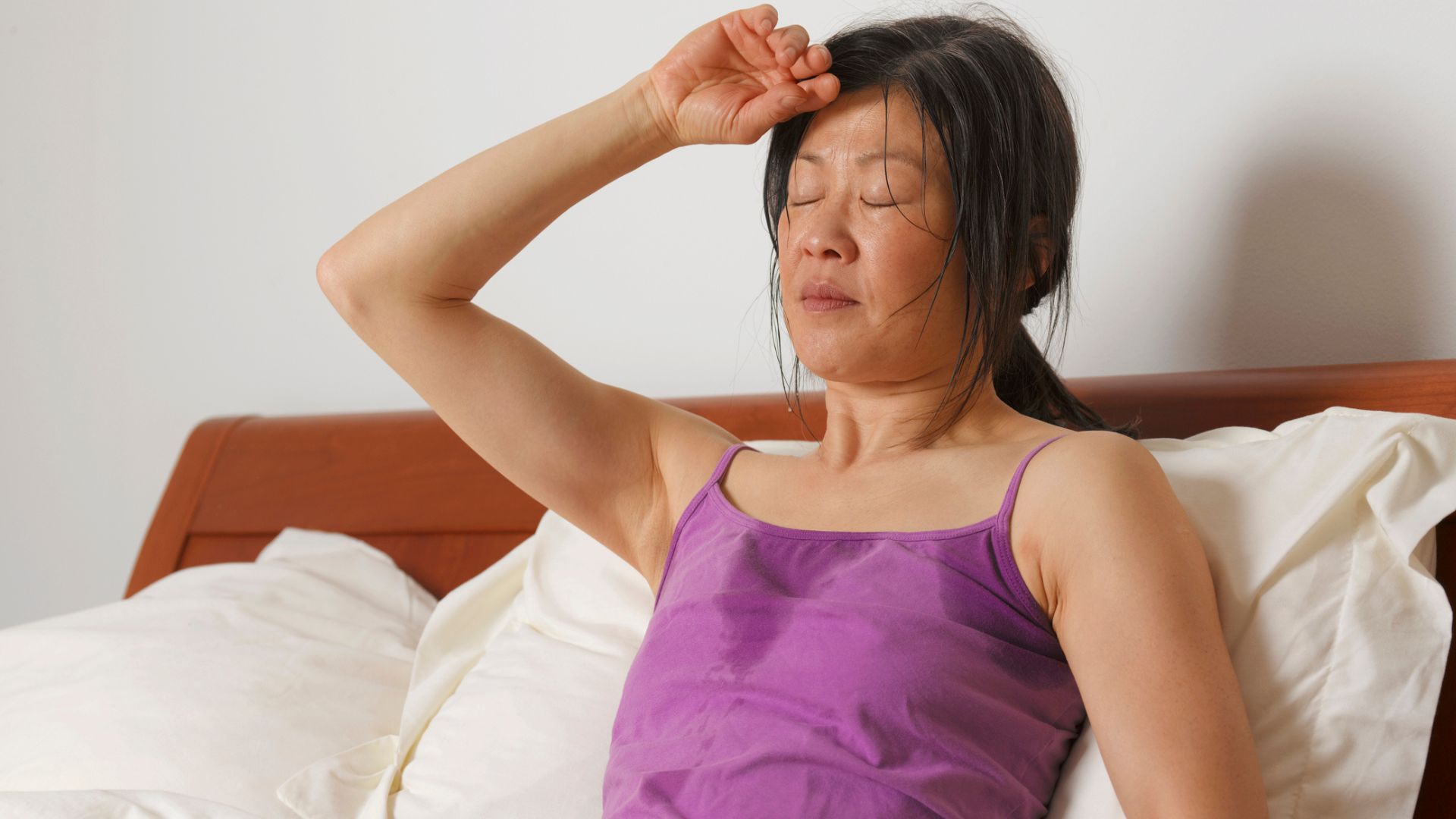
Medication
Certain medications can also cause night sweats by affecting the nervous system, hormone levels, or body temperature regulation.
According to Dr. Matsumura, medications that contribute to night sweats include but aren’t limited to:
- Antidepressants
- Pain relievers
- Fever-reducing drugs
- Steroids
- Some blood pressure medications
“If your medication list has changed recently, it's worth consulting with your doctor,” she shares.
Sleep disorders
Sleep apnea is mainly associated with breathing issues while asleep. “However, those with sleep apnea may also see an uptick in night sweats,” says Dr. Matsumura.
In one Icelandic study, over 30 percent of males and 33 percent of females with obstructive sleep apnea (OSA) reported nocturnal sweating three or more times per week, which was three times higher in untreated OSA patients than in the general population.
Per an observational study published in the journal Sleep and Breathing, patients with obstructive sleep apnea (OSA) who had night sweats also had a higher hypoxic burden (which is essentially a measure of how severe and frequent oxygen drops are during sleep).
Essentially, night sweats can result from not getting enough oxygen throughout the night.
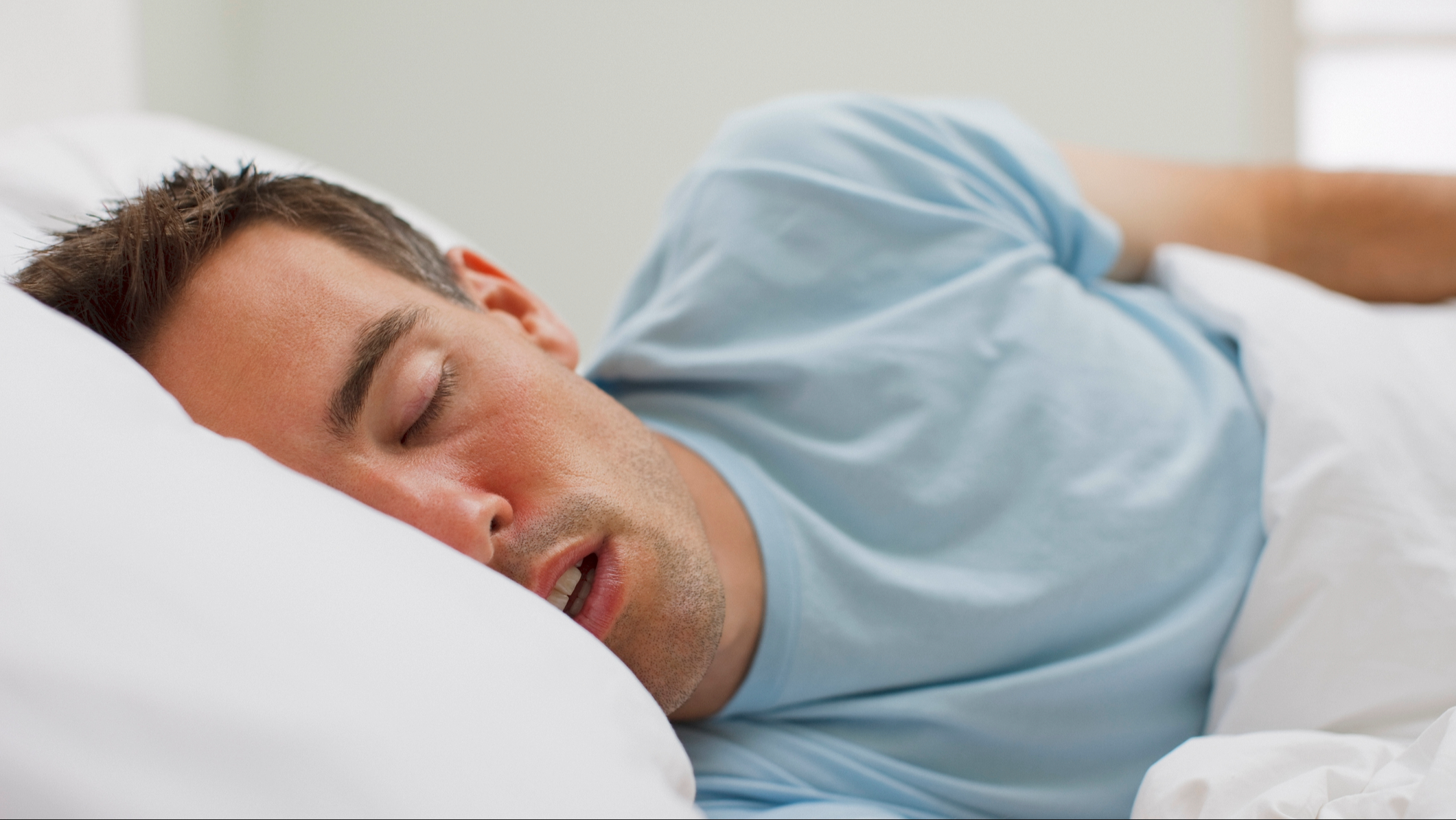
Health conditions
A range of different health conditions can result in night sweats. Dr. Matsumura says these include but aren’t limited to hyperthyroidism, gastroesophageal reflux disease (GERD), diabetes, infections, and certain cancers.
Reasons can involve a range of mechanisms, including those that overlap with medications—such as effects on the nervous system, hormones, and body temperature regulation—but also metabolic and immune responses.
For instance, hyperthyroidism (i.e., a chronically overactive thyroid) increases metabolism and body temperature, leading to excess warmth and sweating that can occur both day and night.
Mental health
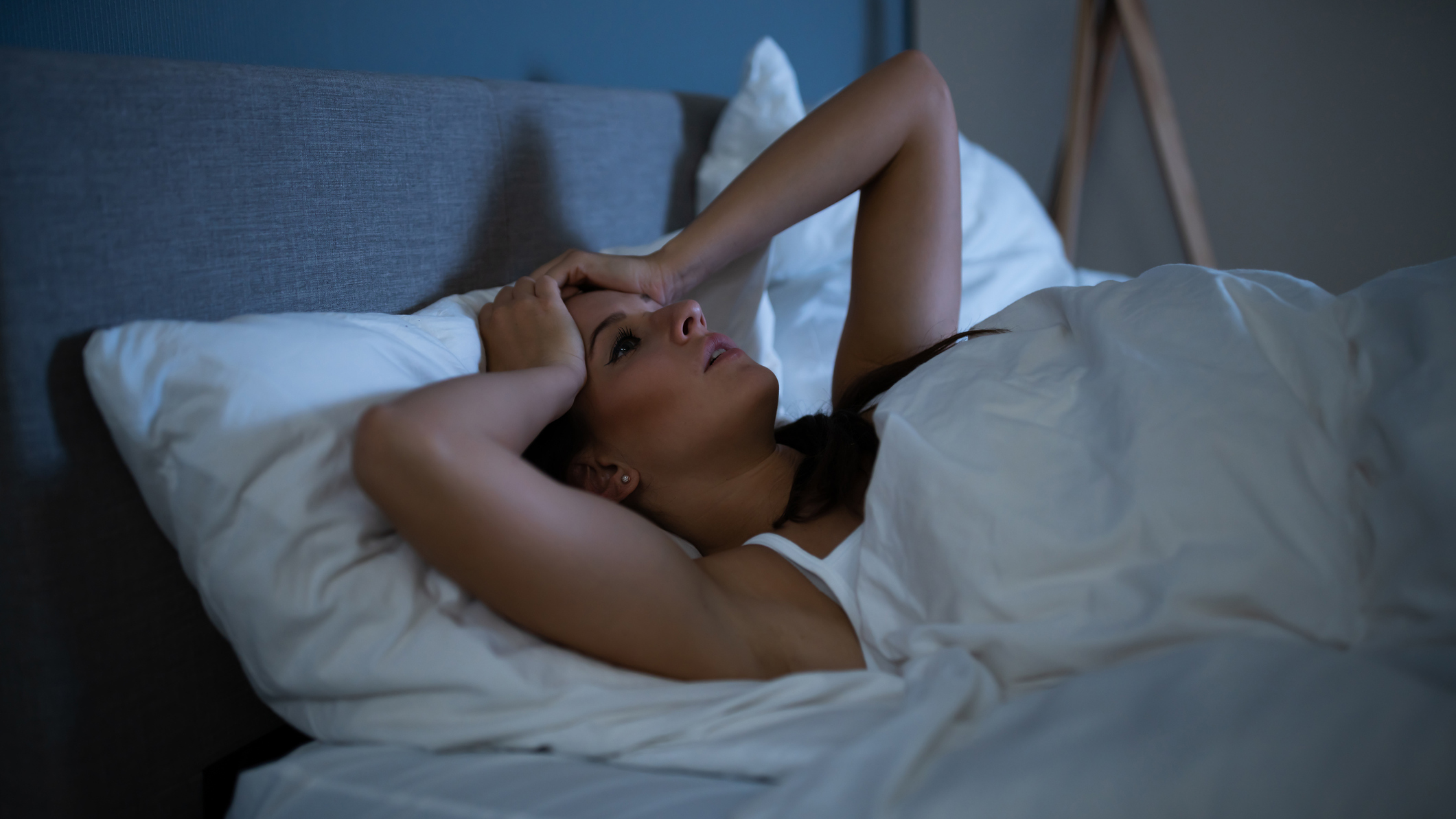
Mental health challenges often interfere with sleep, and night sweats are no exception.
“Anxiety, stress, and depression can activate the sympathetic nervous system at night,” says Dr. Matsumura. “This essentially mimics the body’s fight-or-flight response, which can lead to sweating.”
But that’s not all. “Nightmares and night terrors caused by mental health issues can also lead to sweating episodes,” she adds.
How to stop night sweats
If you suspect that you’re dealing with night sweats (potentially alongside other symptoms), be sure to consult your physician for guidance.
They’ll not only be able to help decipher if and why you’re sweating through the night, but also help you achieve cooler, higher-quality sleep and support overall health.
“If night sweats are disrupting your sleep or quality of life, don’t ignore them,” advises Dr. Matsumura. “Sleep is when your body restores and regulates itself, and persistent disruption can have knock-on effects on your overall health.”
On top of seeking professional guidance, there are tips and tricks to help manage or reduce night sweats.
Plus, be sure to check out our guide on how to find the right mattress for menopause and how to sleep better during perimenopause if you suspect your night sweats are caused by hormonal changes.
Dietary and lifestyle changes
While severe night sweats will likely require medical intervention, a few dietary and lifestyle tweaks can help avoid exacerbating the issue.
Some expert-backed food for thought? “Cut back on alcohol, caffeine, spicy foods, and heavy meals before bed,” Dr. Matsumura shares.
On the lifestyle front, carving out time and space to wind down before sleeping can also elicit positive changes. Why not creative your own nighttime routine?
For example, “Guided relaxation and journaling before bed can help calm the nervous system,” says Dr. Matsumura.

Create a cool bedroom environment
Your bedroom environment can make or break your sleep quality—not to mention make a dent on how mild or severe your night sweats are.
For starters, the best temperature for sleeping ranges from 65 to 70 degrees Fahrenheit (18 to 21 degrees Celcius). So set your thermostat with these temperatures in mind.
Keeping your room dark via blackout shades, as well as running a fan, can also help with temperature regulation.
In addition, Dr. Matsumura suggests that those with night sweats use breathable sheets and consider investing in a cooling mattress and/or topper.
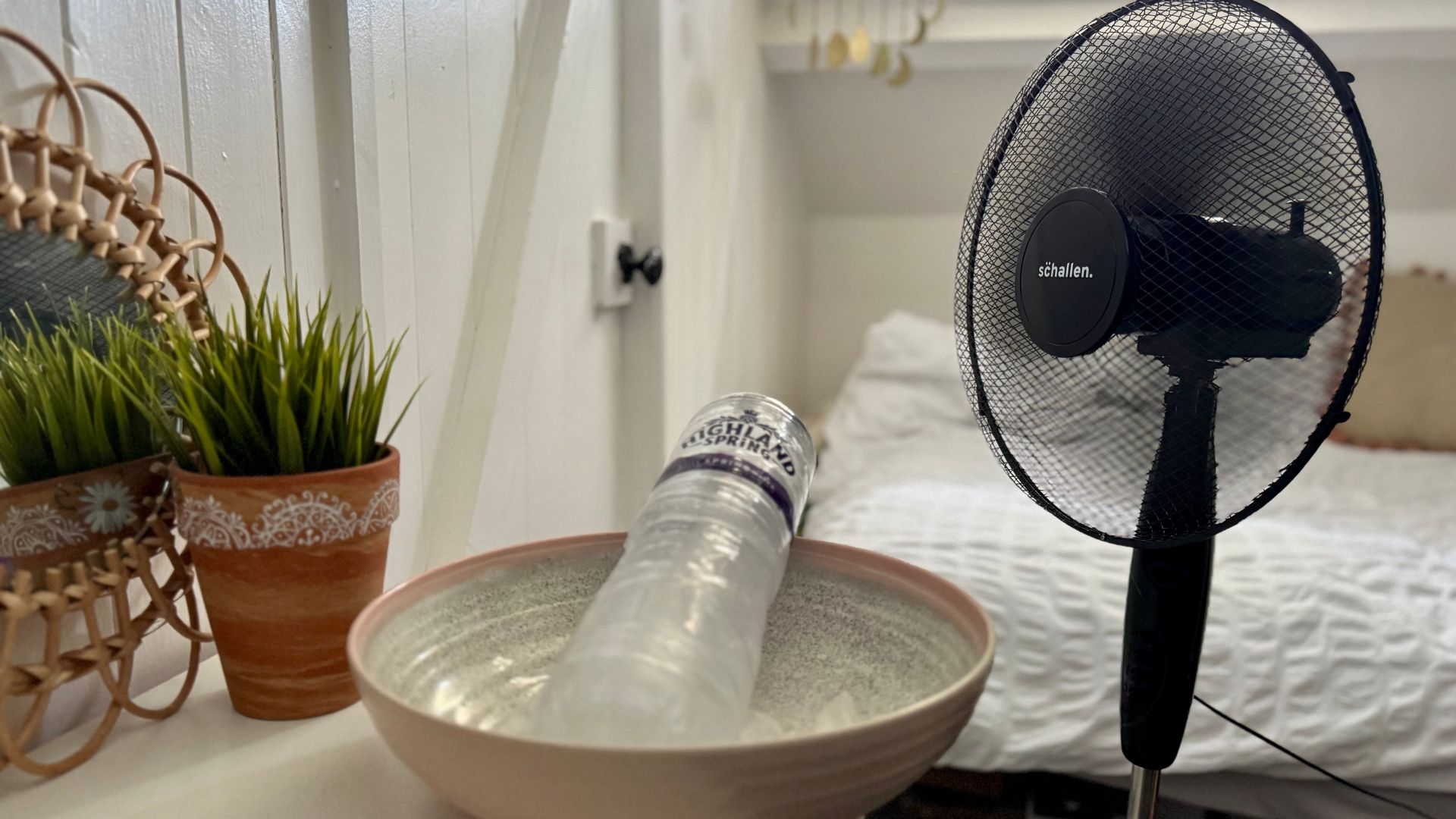
Exercise regularly
Consistent exercise works wonders for just about every aspect of your health. It even has the potential to mitigate night sweats.
“Daily movement can help regulate hormones and improve sleep,” says Dr. Matsumura. There’s just one catch: Aim to avoid intense workouts 2 to 3 hours before bedtime, as they can be too stimulating.
If you prefer high-intensity workouts, aim to schedule them earlier in the day. If you only have time to move your body at night, aim for lower intensity forms of movement such as walking, yoga or gentle stretching. Use our guide on how to exercise for better sleep.
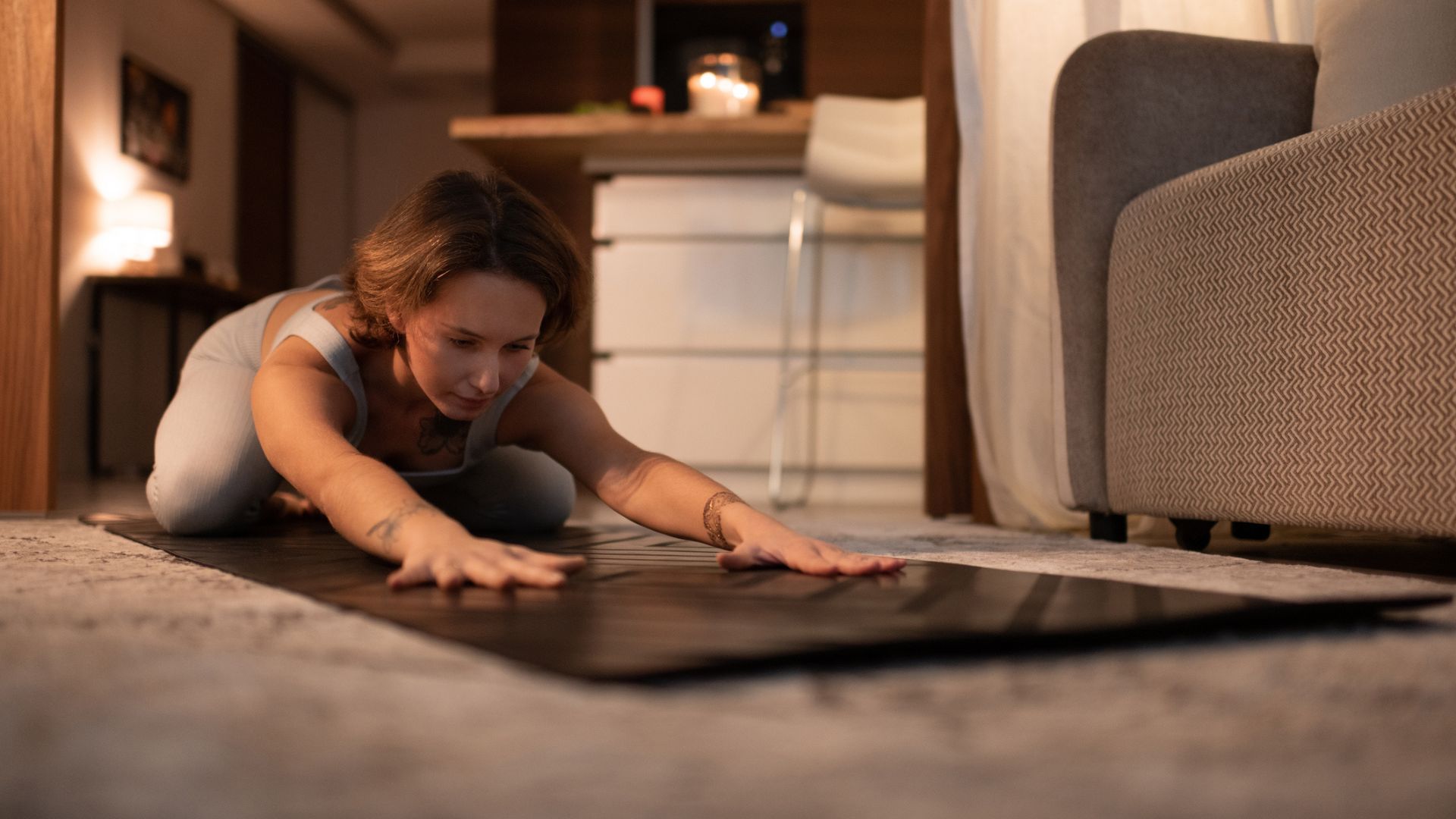
Medical interventions
Night sweats often indicate that an underlying health condition is at play. That said, it’s important to discuss your symptoms in detail with a medical professional.
Different causes may warrant diverse protocols—including but not limited to medications—to reduce not only night sweats but also other symptoms.
“If the root cause is thyroid dysfunction, sleep apnea, or a side effect of medication, treatment should target that specific issue,” Dr. Matsumura explains.
Moreover, if perimenopause or menopause is driving your night sweats, your provider may suggest interventions tailored to your unique needs.
“For menopausal women, hormone therapy (estrogen) or non-hormonal options like selective serotonin reuptake inhibitor (SSRIs), gabapentin, or clonidine can be prescribed depending on your health profile,” she concludes.
Always ensure you consult with a physician before taking any new medication.

Michele Ross is a freelance writer based in Los Angeles. For Tom's Guide and TechRadar, she interviews medical experts for sleep tips and tricks, as well as reviews mattresses and toppers to see which ones are truly worth buying for different types of sleepers and budgets. She has also covered a range of sleep topics for publications and brands including Well+Good, HUM Nutrition, and Mini Bloom, among others.
You must confirm your public display name before commenting
Please logout and then login again, you will then be prompted to enter your display name.
 Club Benefits
Club Benefits






